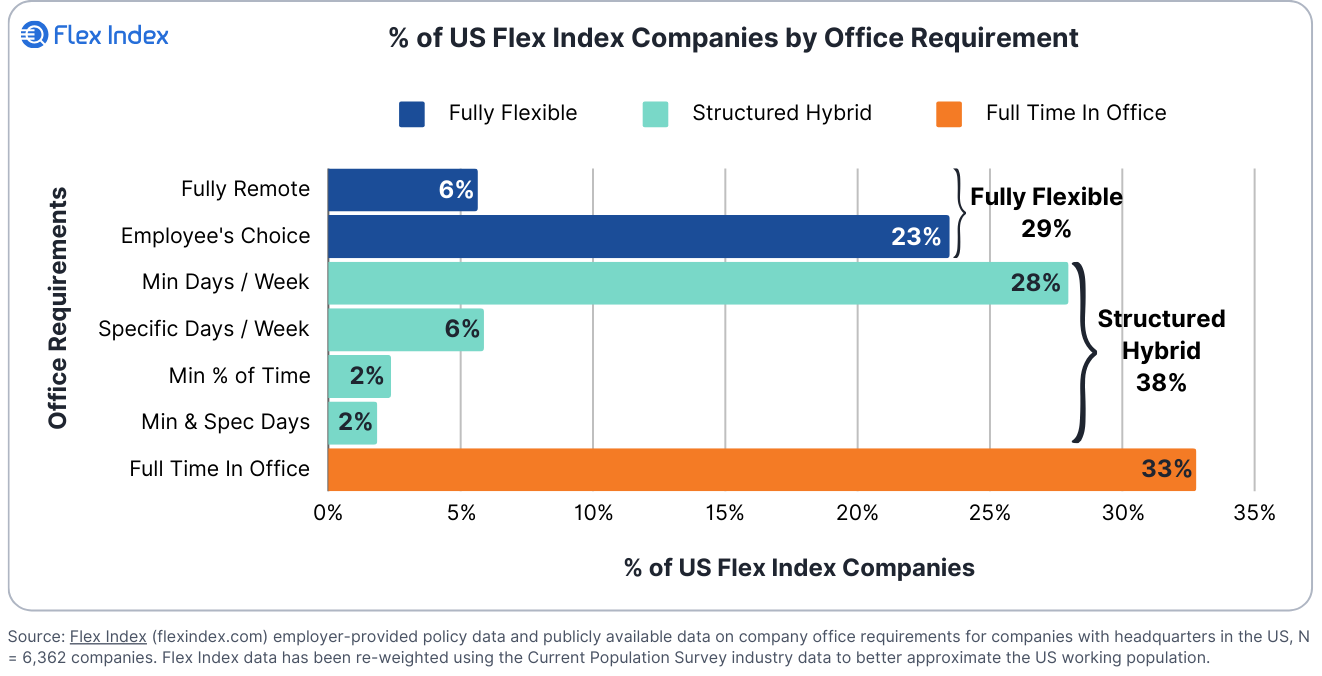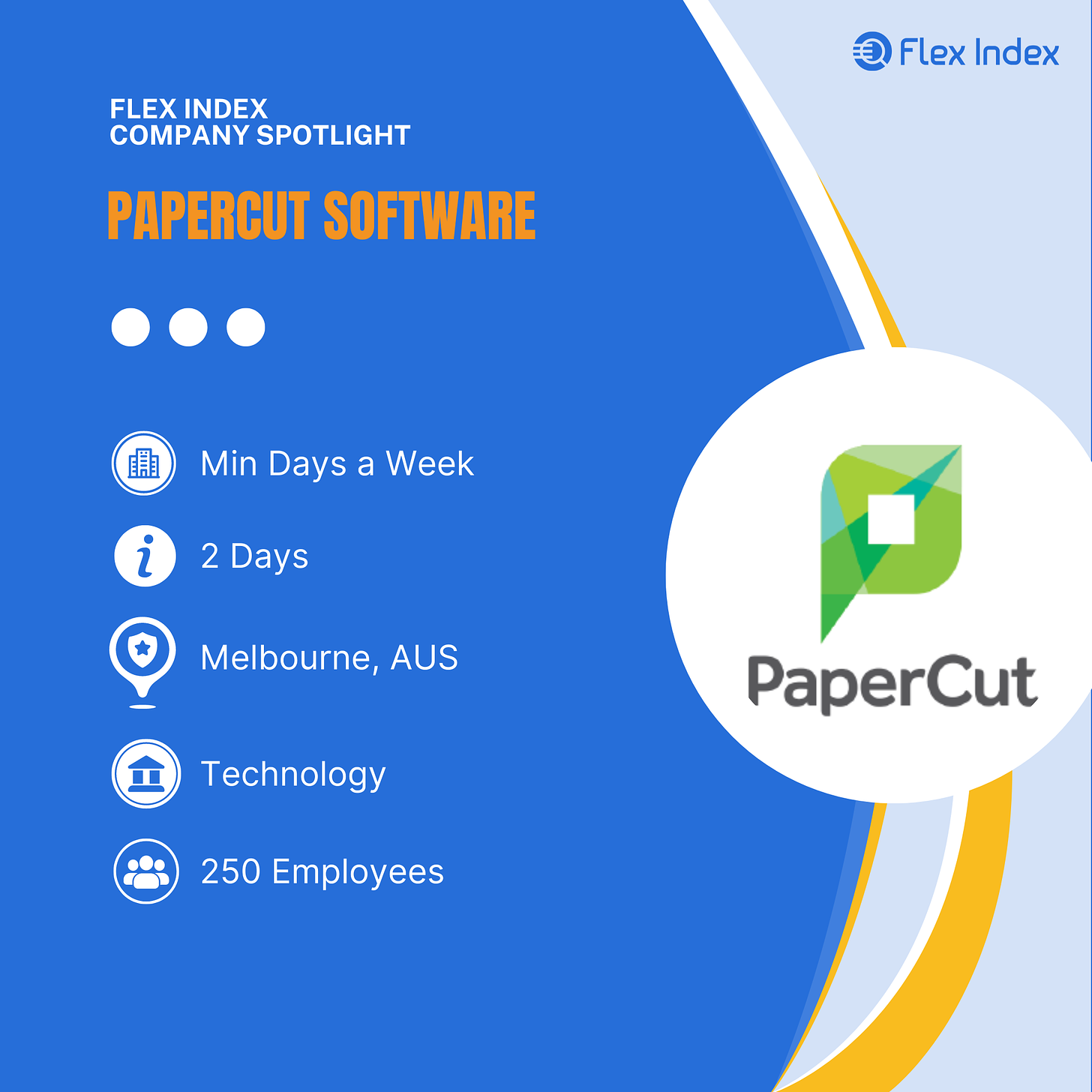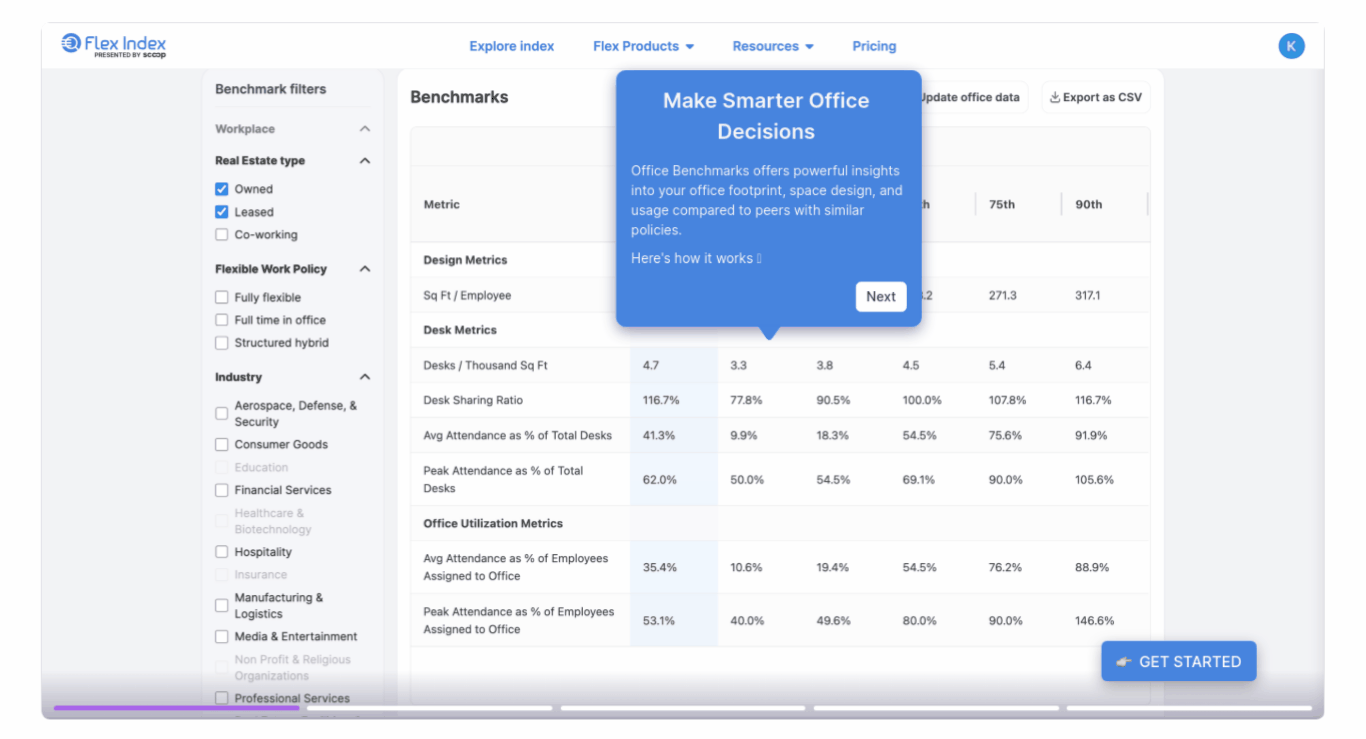Happiness at Work: Not Just Where, But How
Plus, a deep dive into the growing pressures of the office landscape with Francis Saele
👋 Happy Tuesday! Is there a correlation between an area's cost of living and its employers' flexible work policies? Examining 38 major metros, we found that regions with higher living costs offer greater flexibility in work location. Local industry mix, commute challenges, and associated expenses all influence this trend.
In this week’s edition:
😃 Employee Happiness Goes Beyond Location
📊 Structured Hybrid Staying Power
🎙️ The Big Office Shrink with Francis Saele
Current Subscribers: 7,175
Please forward to colleagues and friends! Link to subscribe.
THIS WEEK’S FLEX FOCUS 🔍
WFH: The Unexpected Engine of Economic Growth
The pandemic-induced surge in remote work could reverse decades of slowing productivity growth. Now stabilized at five times its pre-pandemic level, remote work promises significant economic benefits through increased labor supply, optimized capital use, and enhanced productivity.
Employees value flexibility at about 8% of their salary, leading to increased labor force participation, particularly among those with disabilities and women with childcare responsibilities. Reduced office space usage allows for the repurposing of urban areas and eases traffic. While hybrid work's direct productivity impact appears neutral, macro effects are likely positive due to improved labor market inclusion and reduced pollution.
A positive feedback loop is emerging as technology companies innovate for remote work. Despite concerns about city center decline, the long-term benefits of WFH, including more affordable urban housing, make this one of the most broadly beneficial economic changes in recent history.
FLEX WORK QUICK HITS 💥
Stay ahead of the curve with our curated roundup of the trending flexible work stories making waves right now. Here's what you need to know 👇
Forbes: This year's post-Labor Day period sees a subdued push for office returns as employers increasingly embrace flexible work arrangements, signaling a shift towards sustainable hybrid models.
WorkLife: Remote work isn't the only key to employee happiness; workplace culture and recognition matter more, new studies reveal.
Bloomberg: London's low office attendance trails global peers, potentially impacting productivity and investment appeal despite slight year-over-year increases.
The Hill: Proposed legislation targeting US federal teleworkers' pay and benefits sparks debate on fairness, productivity, and the future of government work.
STAT OF THE WEEK 📈
Structured Hybrid Models Continue to Grow In Popularity
Structured Hybrid has become the dominant flexible work model in the United States. At Structured Hybrid companies, corporate employees are not expected to be in the office full time. Still, there is a set expectation (most commonly on a weekly basis) for how much time employees spend in the office.
On an industry-adjusted basis, 38% of US firms are Structured Hybrid, up from 20% in Q1 2023. Full-time in-office is the second most common model at 33%, although this represents a significant drop from 49% of firms in Q1 2023. Fully Flexible models — where employees do not have any required office time —are least common in the United States.
FLEXPERT INSIGHTS 🧠
Navigating the Future of Work: Essential Insights for Change Leaders
The upcoming webinar "Hybrid Working Megatrends Impacting Change Management" offers change leaders crucial insights for navigating the evolving workplace. Featuring future of work expert Gwen Stirling-Wilkie, this September 24th virtual event will explore key trends shaping modern work environments and their impact on change initiatives.
Gwen will share strategies for creating high-performance change flexibility in hybrid environments and introduce the innovative Omni-Working Framework.
Change leaders will learn how to transcend traditional boundaries, effectively engage stakeholders, and adapt their methodologies for the new world of work. With interactive discussions and a Q&A session, this 90-minute webinar promises to equip participants with practical tools for navigating the complex landscape of hybrid work.
FLEX PERSPECTIVES 🎙️
The Big Shrink: Inside the Changing Office Landscape | Francis Saele
In this episode of Flex Perspectives, Rob Sadow is joined by Francis Saele, a long-time real estate executive now Managing Principal at MorteVita, a real estate future of work consultancy.
Join us as we discuss:
The pressures that office buildings are facing with the shift toward hybrid and distributed work
The implications across geographies and for different classes of office space
How AI will continue to impact how we approach work
Also available on Apple Podcasts.
COMPANY SPOTLIGHT ⭐️
PaperCut was founded on a single question: How can we put an end to piles of wasted paper sitting in printer trays? Now, we’re joined by more than 125 million users – across 195 countries and 85,000+ organizations – all crafting better environments one print job at a time. But great software without the people to match is like a printer without paper. That’s why we’ve spent over 20 years building solid relationships lasting just as long – including our first-ever customer, reseller, and employee – while fostering a second-to-none global support network.
ONE MORE THING 1️⃣
Add your company to Flex Index
Learn about Office Benchmarks
Share this newsletter with friends and colleagues
FLEX INDEX | OFFICE BENCHMARKS
Office Benchmarks offers powerful insights into your office footprint, space design, and usage compared to peers with similar policies. Maximize your workplace potential and make confident, informed investments.








